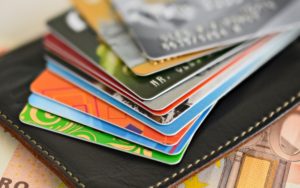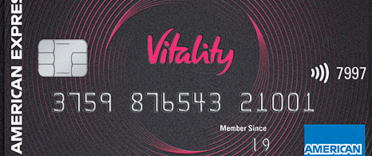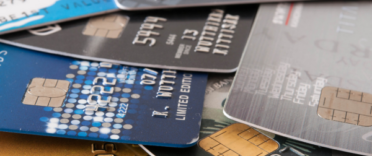 For many people, using a credit card is a great way to earn while they spend, reduce the cost of their debt, cover emergency expenses, and more. However, with so many different types of credit card available, it can be hard to make sure you are picking the right one. In this article we cover all the major reasons you might want a credit card and show you where to look for the best option.
For many people, using a credit card is a great way to earn while they spend, reduce the cost of their debt, cover emergency expenses, and more. However, with so many different types of credit card available, it can be hard to make sure you are picking the right one. In this article we cover all the major reasons you might want a credit card and show you where to look for the best option.
Which credit card is best for me?
Your credit card needs to match up with how you spend money and how you plan to use the card. Below we answer what credit card you should be looking for based on what your spending plans are. If you need more basic information on how credit cards work, have a look at our article 'How do credit cards work?'.
Q: What credit card should I get to reduce the cost of my debt?
A: 0% balance transfer credit card
Someone looking to reduce the cost of their debt could benefit from a 0% balance transfer credit card. This type of card allows you to transfer over your existing debt from other credit cards or even multiple credit cards. For example, if you are paying a high interest rate on two credit cards, it could be much cheaper and easier to pay off the debt by moving it over to a card that doesn’t charge any interest.
Keep in mind that the 0% rate will not last forever, so you will get the most benefit if you can pay off your balance before it ends. Make sure to look at the length of the interest free period when you compare 0% balance transfer cards and you should also check to see if there is a balance transfer fee and factor this in when deciding on the best balance transfer credit card.
You can see what we think the best options are on our ‘Best 0% balance transfer credit cards’ page.
Q: What credit card should I get for purchases and to reduce the cost of my debt?
A: Balance transfer and purchase credit card
A balance transfer and purchase card can help you reduce the level of interest you are paying on your debt, plus you can continue to use the card for everyday spending. You may be able to access a card that offers an initial 0% rate, which means you will not be charged any interest for a set period.
Keep in mind that timeframes on any introductory offers may be different for the spending and transfer parts of the card. For example, your credit card provider may offer 18 months of 0% interest on balance transfers, but only 12 months on spending. You may also have to pay a fee to transfer a balance from another provider, usually 2% to 3% of the amount moved.
The best card will be the one that has the longest 0% period for both balance transfers and purchases. You can read more about balance transfer cards in our article 'What is a balance transfer credit card and how does it work?' or check out the best deals on our ‘Which are the best balance transfer and purchase credit cards?’ page.
Q: What credit card should I get to build my credit history?
A credit builder credit card will help you build up a solid credit history if you use it correctly. You may need to build a credit history because you have a low credit score or because you haven't borrowed money before. Either way, if you find that your credit history is stopping you from qualifying for a standard credit card, a credit builder card can be a useful tool. By repaying it every month in full you can show that you are a responsible borrower, which will make you more attractive to other lenders in the future.
A credit builder card will usually come with a higher interest rate than a standard card. This is because you are likely to be seen as more of a risk by lenders if you have no credit history or a poor credit history. However, by using your credit card responsibly and paying it off in full every month, you will not have to pay any interest on what you spend. Read more in our article ‘Credit-builder cards – which is the best credit card if I have poor credit?’.
A credit-builder card is not the only way to boost your credit score, as there may be some quick fixes you could try out first. Read our article 'The best way to check your credit score for free' to find out how to check your credit score, then check out our article 'How to improve your credit score quickly' to give your score a boost.
Q: What credit card should I get to earn the most cashback and the best rewards?
A: Cashback and reward credit card
If you are a responsible borrower who consistently pays off your credit card at the end of the month, you may be looking to make the most of your spending. The best way to do this is by earning cashback and rewards through using your credit card.
The rewards you collect could be points-based (such as Nectar or Tesco Clubcard points), more focused on airmiles (such as Avios or Virgin Flying Club miles), or simple cashback. These rewards can quickly add up into a valuable bonus, just by using your card as you normally would.
The downside is that rewards and cashback credit cards often include much higher interest rates than other options, plus an annual fee in some cases. This means that if you fail to repay your balance in full at the end of the month, the interest charges can quickly wipe out any value from the rewards. You may also find yourself tempted to spend more money just to earn more rewards. This is wasted money unless the value of the reward exceeds the extra you spend.
Read more about the best cashback and reward credit card options in our article ‘Compare the best cashback and reward credit cards’, or take a look at the top air miles cards on our 'Which are the best air miles credit cards – and should I get one?' page.
Q: What credit card should I get to spread the cost of expensive purchases?
Spreading the cost of an expensive purchase is one of the most beneficial ways to use a credit card and is best done with a 0% purchase card. If you need to pay for a holiday, buy a sofa or purchase a new TV, it can be advantageous to pay for it with a 0% credit card. This is because you can then pay off the balance in small chunks over the course of the card's interest free period. As long as you meet the minimum payment amount every month and clear the card before the end of the initial offer term, you won’t need to pay any interest.
This can save you having to move money from your investment or savings account to pay for a big purchase. For our best-buy 0% purchase options, see our article ‘Compare the best 0% purchase credit cards’.
Q: What credit card should I get to use abroad?
You can use a specialist travel credit card to avoid paying hefty fees and charges when you travel abroad. Many standard credit cards will charge you a fee for using your card outside of the UK and start charging you interest immediately if you use your card to withdraw cash.
For a comprehensive review of travel credit cards, see our article ‘Compare the best travel credit cards’. Alternatively, you could consider the other travel spending options in our article 'The best ways to take money abroad'.
Q: What credit card should I get to use in emergencies?
Many emergency situations cannot be covered by a standard credit card payment. Additionally, withdrawing cash on a standard credit card can be very expensive. If you need money for an emergency that you cannot pay for with your credit card, you can apply for a money transfer credit card. This type of card allows you to transfer money from your credit card to your current account. The amount you have transferred is added to your balance and you will need to repay it.
This can be a good option for a financial emergency, especially if you are able to access a 0% interest money transfer card. Bear in mind, however, that you will usually be charged a fee of around 3% to 5% to transfer money to your current account. Read our article ‘A complete guide to the best money transfer credit cards’ for more information.
What credit card can I get?
Money to the Masses has partnered with Creditec* to help find the best credit card for you. By entering a few basic details, you will be able to see a tailored list of the best credit cards based on your individual circumstances. You can sort your results by the feature that interests you most, such as by card type, total fees or cashback offered. On top of this, the credit cards that have been pre-approved for you will be highlighted, meaning you can be more confident that you will be accepted if you apply. (Pre-approval does not guarantee acceptance and is still subject to additional lender checks). Your details will be used to conduct a soft credit search often referred to as an eligibility check, which means your credit score will not be affected. Click on this link to get started*.
Do I need a credit card?
While there are a whole host of options on the market, applying for a credit card will not be the right choice for everyone. For example, if you are struggling with debt, opening another line of credit may not be the right answer. You can get free debt advice to learn more about planning your way out of debt. We have all the details in our article ‘Where to get free debt advice’.
If you are unsure whether a credit card is the right option for your financial situation, read our article ‘Should I get a credit card?’.
If a link has an * beside it this means that it is an affiliated link. If you go via the link Money to the Masses may receive a small fee which helps keep Money to the Masses free to use. But as you can clearly see this has in no way influenced this independent and balanced review of the product.






